You are using an out of date browser. It may not display this or other websites correctly.
You should upgrade or use an alternative browser.
You should upgrade or use an alternative browser.
Afghanistan
- Thread starter Ruth
- Start date
The sizing of weapons by the Taliban is not an aberration nor new phenomenon, it's a replay of the arming of ISIS in Iraq and Libya (other US democracy succesful projects). That the US had deals with the talibans for months is not a secret although the full extent of those deals is not known. It is possible that it was expected to let the US troops retreat in a semblance of a dignity but for the taliban, there was too much of a temptation to let that happen. It mustn't be forgotten that the US et allies is a brutal occupying foreign force after all.
bjorb
The Living Force
The sizing of weapons by the Taliban is not an aberration nor new phenomenon, it's a replay of the arming of ISIS in Iraq and Libya (other US democracy succesful projects). That the US had deals with the talibans for months is not a secret although the full extent of those deals is not known. It is possible that it was expected to let the US troops retreat in a semblance of a dignity but for the taliban, there was too much of a temptation to let that happen. It mustn't be forgotten that the US et allies is a brutal occupying foreign force after all.
Maybe the US is counting that the Taliban will become a caliphate to agitate the surrounding countries, namely, Russia, China, and Iran. In this way, they can be of use. The thing they failed to do in Syria. But now hope to succeed in another region close by.
Or the US will commit a false flag hoping to bring other countries into the region. Namely, the ones already mentioned. I don't know.
bjorb
The Living Force
They tried to involve Russia:Or the US will commit a false flag hoping to bring other countries into the region. Namely, the ones already mentioned. I don't know.
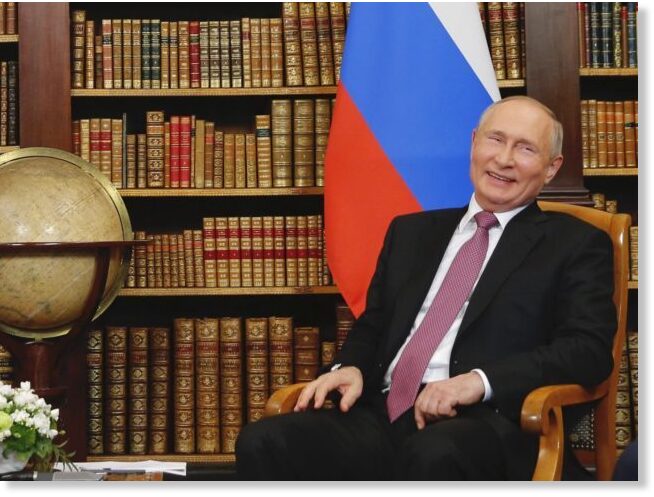
Putin reportedly rejected Biden's request for bases near Afghanistan
Russian President Vladimir Putin rejected a request by U.S. President Joe Biden to allow an American military presence in countries near Afghanistan, the Wall Street Journal reported Thursday. Biden reportedly made the request at the two leaders'...
But Russia may have other plans and other methods to deal with these things in central Asia:
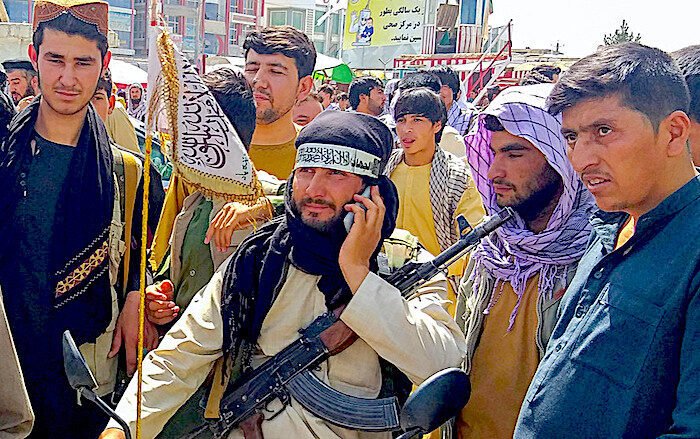
Russia won't deploy troops to Afghanistan, instead focusing on making 'peaceful' contact with Taliban, top Moscow officials reveal
Russia has said it has no intention of deploying troops to Afghanistan or stepping up its military presence in the region in response to the Taliban's takeover of the country, instead focusing on opening up diplomatic channels. The deputy head of...
Back on July 8th I noted this on the Ports of Unrest... thread. I believe there was already chatter about the withdrawal starting (no pun intended, but good riddance the cowboy junkies must be jonesing now!)
Perhaps one last run for the junkies running the Empire of Chaos. I've been calling it Vietnam II for 20 years (I was only 21 and could see what they were scheming) 20 years overdue too. What a tragic waste of energy, resources, and life that could have been better spent on creative aspirations. Apparently you still can't buy peace, love or understanding. Not even for a trillion dollars...
Also a container full of heroin was seized in Mumbai. Enroute from Iran via Afghanistan:
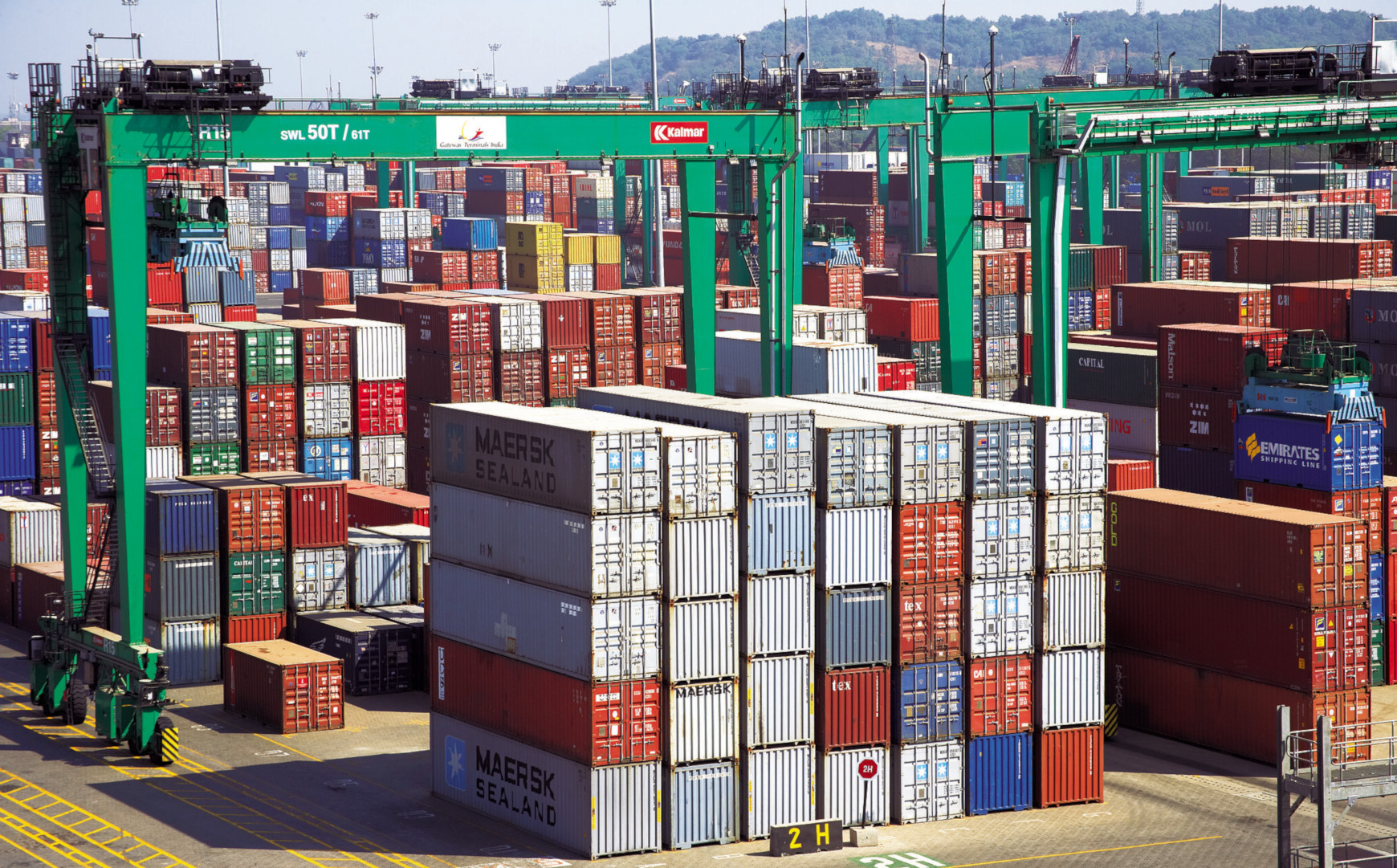
US$300 million drug bust at Mumbai Port - Container News
India's Directorate of Revenue Intelligence (DRI) officials along with the Nhava Sheva Customs department seized a massive 293-kilo heroin drug consignmentcontainer-news.com
Last week, India's Directorate of Revenue Intelligence (DRI) officials along with the Nhava Sheva Customs department seized a massive 293-kilogram heroin drug consignment from two containers concealed with talcum stones in Mumbai's Jawaharlal Nehru Port.
According to DRI officials, the two containers which arrived from Iran's Chabahar port contained a total of 350 gunny bags out of which six, three in each container, were packed with heroin [me: hiding among the talcum stones] which was later confiscated under the provisions of Narcotic Drugs and Psychotropic Substances (NDPS) Act, 1985.
"These six gunny bags of similar weight and having slightly different marks and sieve pattern were found concealed at different locations inside the containers," said DRI officials.
The consignment was believed to be headed for Punjab by road before it was intercepted, while the containers were imported by M/s Sandhu Export from Iran via Afghanistan.
Perhaps one last run for the junkies running the Empire of Chaos. I've been calling it Vietnam II for 20 years (I was only 21 and could see what they were scheming) 20 years overdue too. What a tragic waste of energy, resources, and life that could have been better spent on creative aspirations. Apparently you still can't buy peace, love or understanding. Not even for a trillion dollars...

India had been watching the developments in Afghanistan with some sort of concern for a while and was able to pull its diplomatic contingent in time and in midnight without telling Taliban. India's main concern is not so much about Taliban itself, many outfits like LeT that was active in Kashmir, responsible for many high profile kidnapping and plane hijacks etc for last 30 years. In the end, it's the same poor villagers who were brainwashed in the name of "God" , branded in different names for functional purposes - Taliban, al-Queida, LeT, ISIS and so on.
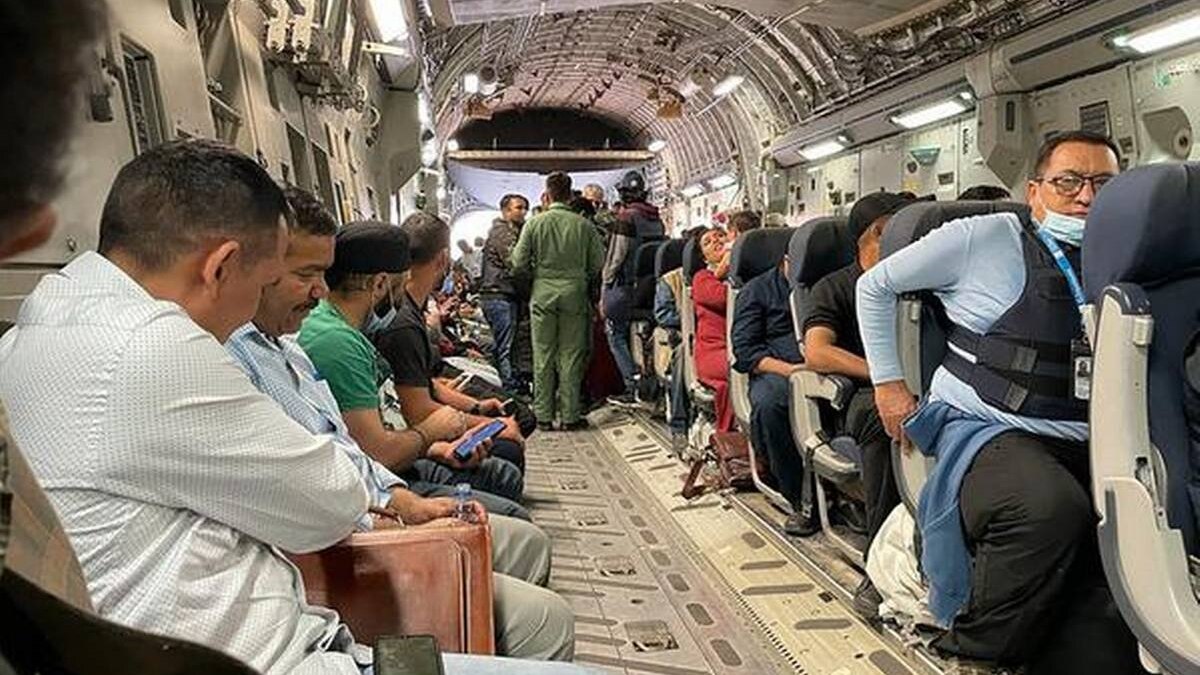
 www.indiatoday.in
www.indiatoday.in
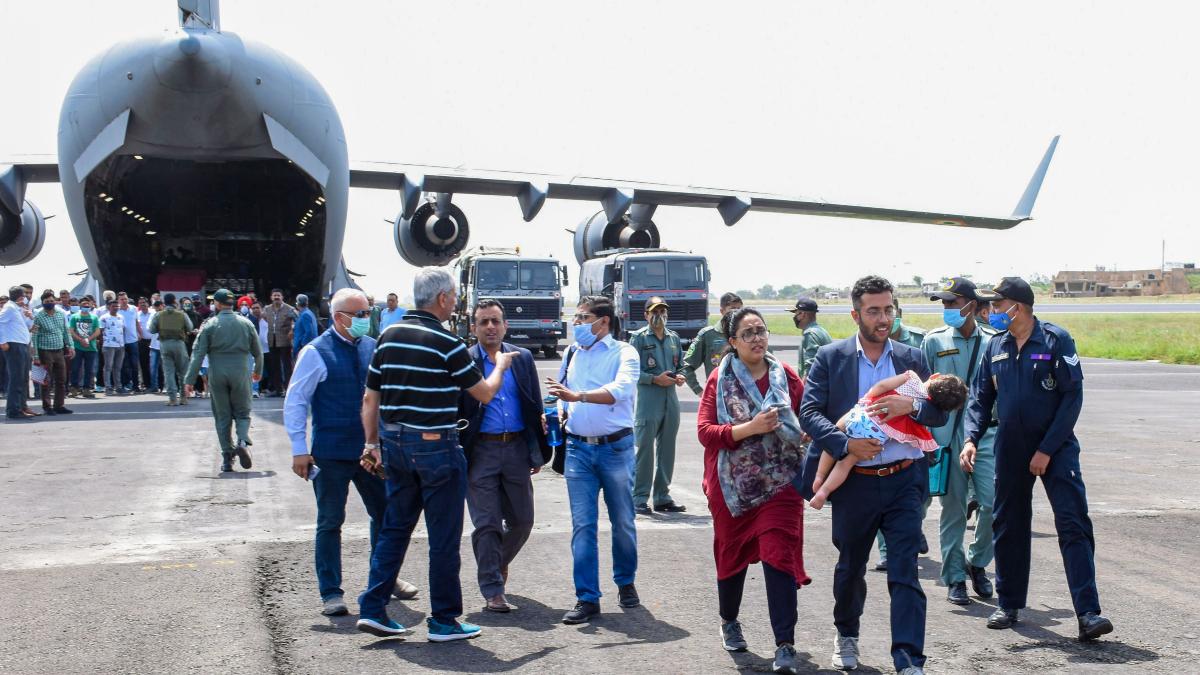
 www.indiatoday.in
www.indiatoday.in
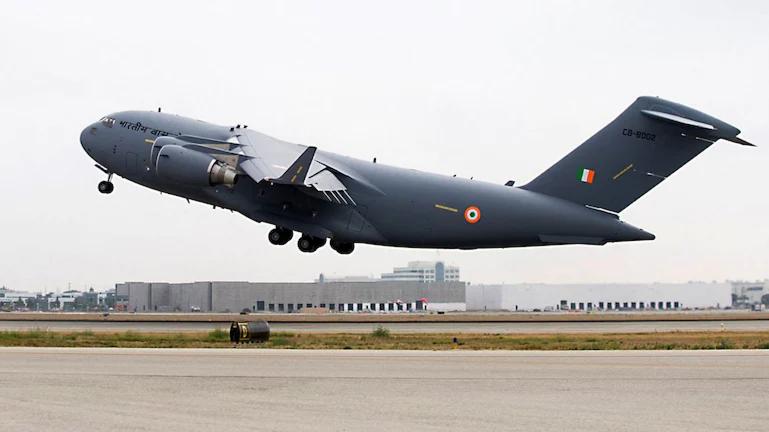
 www.indiatoday.in
www.indiatoday.in
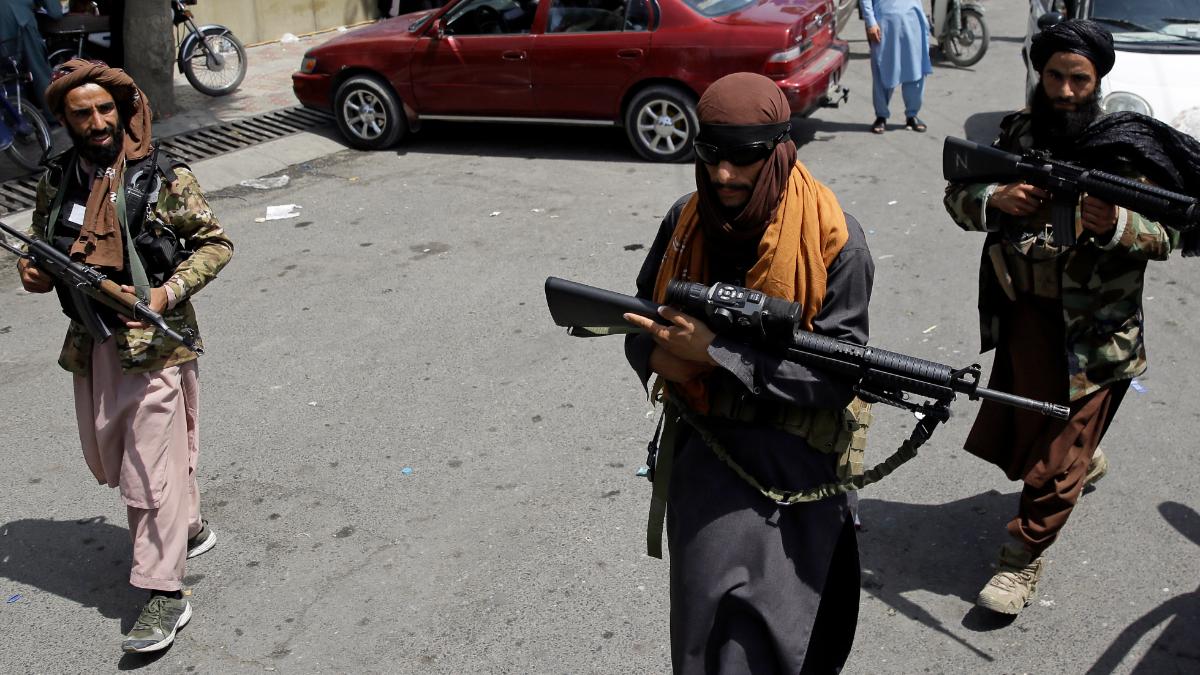
 www.indiatoday.in
www.indiatoday.in
I suspect there is some bigger plan going on in the upstairs and probably that's question for C's.
All this can be done under the cover of "Minority oppression" (Which India's old establishment's Lefties and media are too happy to endorse). It doesn't matter Muslims are 15% and 80% are Hindu in India ( 90% of Hindu's are secular orientation) and any thing can pumped into brains in the age of short memory spans . All can be whitewashed in the name of "God". Last time, Britain hand washed its Indian assets in 1947 by drawing arbitrary line between India and Pakistan overnight, it is million plus dead and its trauma echoed for generations. Modi who has been trying to break the back bone of varied shades of criminal elements nexus ( politics - black money - drugs- corruption - Bollywood - terrorism) will have rough time. It's going to be BIG mess and is going to be hard to control these elements.
Let's see Putin will pull some magic out of his hat with some interested countries. I doubt it as it is not as high priority topic like fighting with West for survival.

How India evacuated Indian nationals amid Taliban patrol in Kabul | Inside details
Minute-to-minute monitoring, a well-calculated strategy and real-time assessment of the security scenario in Kabul were among the key elements of India's complicated evacuation operation to fly the Indian nationals out of Afghanistan. In the absence of a government to coordinate with in the...

How Indians were evacuated from Kabul in a secret operation | Exclusive satellite images
Exclusive satellite images provided by Planet Labs show how India carried out a secret operation to evacuate the Indian ambassador, embassy staff and other Indians from Taliban-controlled Kabul.

IAF evacuated 50 Indians from Mazar-e-Sharif few days before Taliban captured Afghan town
As the Taliban made rapid strides in Afghanistan, the IAF evacuated around 50 Indian consulate staffers and security personnel from Mazar-e-Sharif, a couple of days before the city was captured.

Taliban fighters raid empty Indian consulates in Kandahar, Herat, say reports
The Taliban went on a searching spree at the Indian consulates in Kandahar and Herat looking for documents, said reports.
With Taliban with no money and in power (with West's abrupt hand washing of the land) will inevitably has to sell their main asset- drugs. India is inevitably convenient place - nearer to the land, 1.3 billion people, Pakistan will gleefully facilitate it, while crying foul of Kashmir in international circles and trying to posture as a middle man to solve the Kashmir's problem on the behalf of Western money lords ( familiar drama for 70 years until Modi pulled the rug under its feet) . I have to wonder, whether West doesn't need drugs any more from Afghanistan and what about CIA that raises money from these drugs? Vaccine is good enough to control people? Any way, it is the same printed paper that goes as Covid relief that is used for drugs.Back on July 8th I noted this on the Ports of Unrest... thread. I believe there was already chatter about the withdrawal starting (no pun intended, but good riddance the cowboy junkies must be jonesing now!)
I suspect there is some bigger plan going on in the upstairs and probably that's question for C's.
All this can be done under the cover of "Minority oppression" (Which India's old establishment's Lefties and media are too happy to endorse). It doesn't matter Muslims are 15% and 80% are Hindu in India ( 90% of Hindu's are secular orientation) and any thing can pumped into brains in the age of short memory spans . All can be whitewashed in the name of "God". Last time, Britain hand washed its Indian assets in 1947 by drawing arbitrary line between India and Pakistan overnight, it is million plus dead and its trauma echoed for generations. Modi who has been trying to break the back bone of varied shades of criminal elements nexus ( politics - black money - drugs- corruption - Bollywood - terrorism) will have rough time. It's going to be BIG mess and is going to be hard to control these elements.
Let's see Putin will pull some magic out of his hat with some interested countries. I doubt it as it is not as high priority topic like fighting with West for survival.
Ocean
The Living Force
I'm trying to find a grand unifying theory for the events in Afghanistan. Current thoughts:
- Trump signed a deal with the Taliban for an orderly withdrawal of US forces from the country.
- Various players become very worried about the future of the child and drug trafficking operations in the region. Those with relationships with local groups figure out that US hardware would be very useful in their hands and order Milley and others to proceed with the withdrawal - but leave billions of dollars of US weapons and equipment to be captured.
- The remaining civilians and allies are seen as collateral damage that the American people will just shrug about and move on to the next news cycle - a serious miscalculation.
- The joke's on the DS though: the Taliban have already made a deal with China. Afghans are past masters at playing off different countries against each other so as to get the upper hand in local tribal politics. I've also heard that Israel has been helping them expel Iranian groups from Afghanistan.
I am simplifying a lot of course - 'the Taliban' doesn't exist as a monolithic entity. The whole region is, and always has been, dominated by shifting loyalties, alliances of convenience and interference from empires who get sucked in to local tribal politics because they want to profit from drugs, children and money laundering.
I find it very telling that the Taliban and the Afghan government met in April last year for 'technical discussions' and those discussions were overseen by the UN and the Red Cross. The Rothschilds and the UN making sure that the flow of opium and children would continue? What a shitshow
- Trump signed a deal with the Taliban for an orderly withdrawal of US forces from the country.
- Various players become very worried about the future of the child and drug trafficking operations in the region. Those with relationships with local groups figure out that US hardware would be very useful in their hands and order Milley and others to proceed with the withdrawal - but leave billions of dollars of US weapons and equipment to be captured.
- The remaining civilians and allies are seen as collateral damage that the American people will just shrug about and move on to the next news cycle - a serious miscalculation.
- The joke's on the DS though: the Taliban have already made a deal with China. Afghans are past masters at playing off different countries against each other so as to get the upper hand in local tribal politics. I've also heard that Israel has been helping them expel Iranian groups from Afghanistan.
I am simplifying a lot of course - 'the Taliban' doesn't exist as a monolithic entity. The whole region is, and always has been, dominated by shifting loyalties, alliances of convenience and interference from empires who get sucked in to local tribal politics because they want to profit from drugs, children and money laundering.
I find it very telling that the Taliban and the Afghan government met in April last year for 'technical discussions' and those discussions were overseen by the UN and the Red Cross. The Rothschilds and the UN making sure that the flow of opium and children would continue? What a shitshow
Ocean
The Living Force
Frog-avatar account successfully negotiates with the Taliban in Twitter, something the Spanish government was unable to do using official lines of communication.

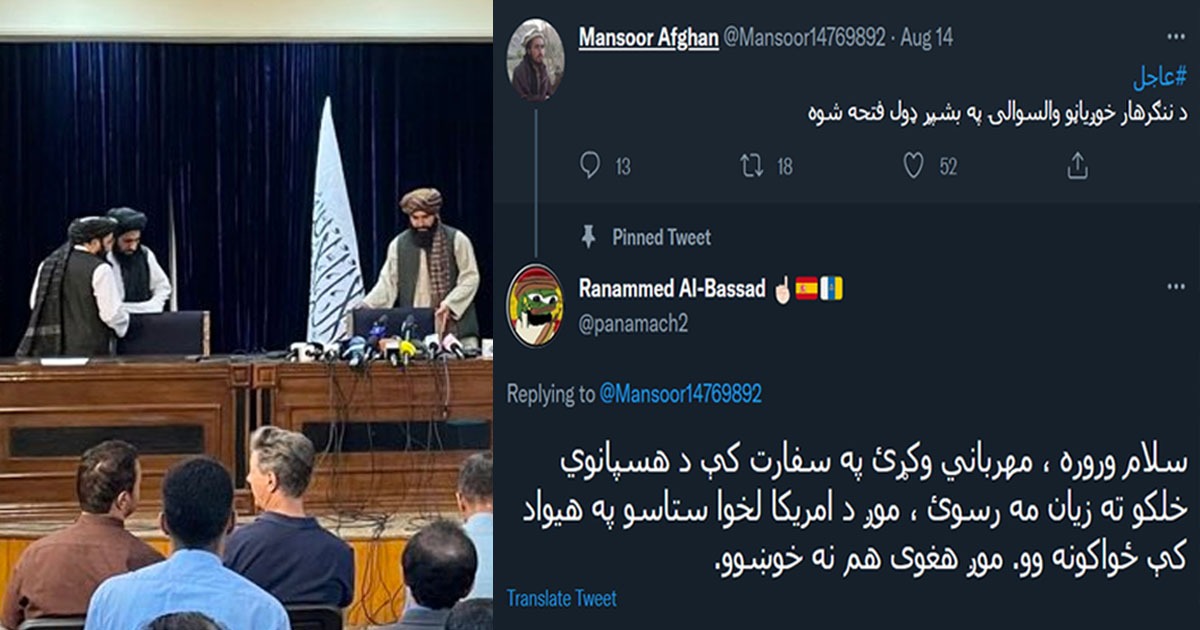
 nationalfile.com
nationalfile.com
Mansoor Afghan responded in English, “We are human beings, we all respect each other, we don’t say anything to any foreign troops.” The exchange was viewed as somewhat humorous by many Twitter users, with one pointing out that “a guy with a picture of pepe has done more for the sanish people in afghanistan than the spanish government.”
The Associated Press reported on August 13 that the Spanish government had moved to evacuate Spanish nationals after the Taliban began moving to take control of the country. An email from the Spanish government stated that “the advance of Taliban forces in their march towards Kabul,” and that the country would commence “the repatriation of the embassy staff, the Spaniards remaining in the country, and those Afghans and their families who have worked side by side with us.”
It does not appear that the Spanish government was able to establish a direct line of communication with the Taliban to negotiate for the safe passage of its embassy staff, unlike the frog-avatar Twitter user who was able to secure a swift response with just one tweet.
Much of the blame for the chaotic withdrawal of U.S. forces from Afghanistan has been placed by experts at the feet of the Biden regime, which moved back the deadline for withdrawal set by President Donald Trump in 2020.
Twitter ‘Frog’ Account Successfully Negotiates With Taliban To Secure Safety Of Spanish Diplomats After Government Fails

Twitter ‘Frog’ Account Successfully Negotiates With Taliban To Secure Safety Of Spanish Diplomats After Government F
A Spanish Twitter account with an Apu Apustaja frog avatar has successfully negotiated with the Taliban for fair and humane
A Spanish Twitter account with an Apu Apustaja frog avatar has successfully negotiated with the Taliban for fair and humane treatment of Spanish citizens at the nation’s embassy in Kabul, Afghanistan. The Spanish government had seemingly failed to establish a clear and open line of communication with the Taliban, inspiring the owner of the frog-avatar account to take action.
“Nangarhar’s sweet district was completely conquered,” Taliban spokesperson Mansoor Afghan announced on August 14, to which the account @panamach2 reached out to respond using Google translate, “Hello brother, please don’t hurt the Spanish people at the embassy, we were forces in your country by America. We don’t like them either.”Mansoor Afghan responded in English, “We are human beings, we all respect each other, we don’t say anything to any foreign troops.” The exchange was viewed as somewhat humorous by many Twitter users, with one pointing out that “a guy with a picture of pepe has done more for the sanish people in afghanistan than the spanish government.”
The Associated Press reported on August 13 that the Spanish government had moved to evacuate Spanish nationals after the Taliban began moving to take control of the country. An email from the Spanish government stated that “the advance of Taliban forces in their march towards Kabul,” and that the country would commence “the repatriation of the embassy staff, the Spaniards remaining in the country, and those Afghans and their families who have worked side by side with us.”
It does not appear that the Spanish government was able to establish a direct line of communication with the Taliban to negotiate for the safe passage of its embassy staff, unlike the frog-avatar Twitter user who was able to secure a swift response with just one tweet.
Much of the blame for the chaotic withdrawal of U.S. forces from Afghanistan has been placed by experts at the feet of the Biden regime, which moved back the deadline for withdrawal set by President Donald Trump in 2020.
Here are couple of interesting articles on Taliban over the years
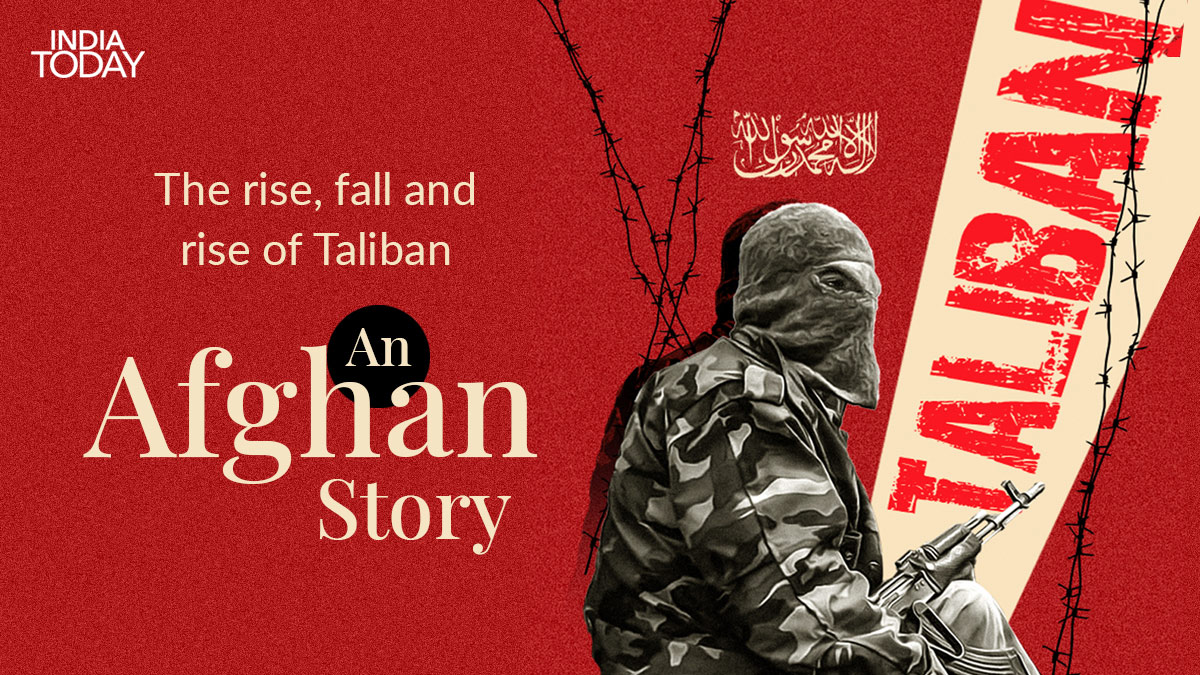
 www.indiatoday.in
www.indiatoday.in
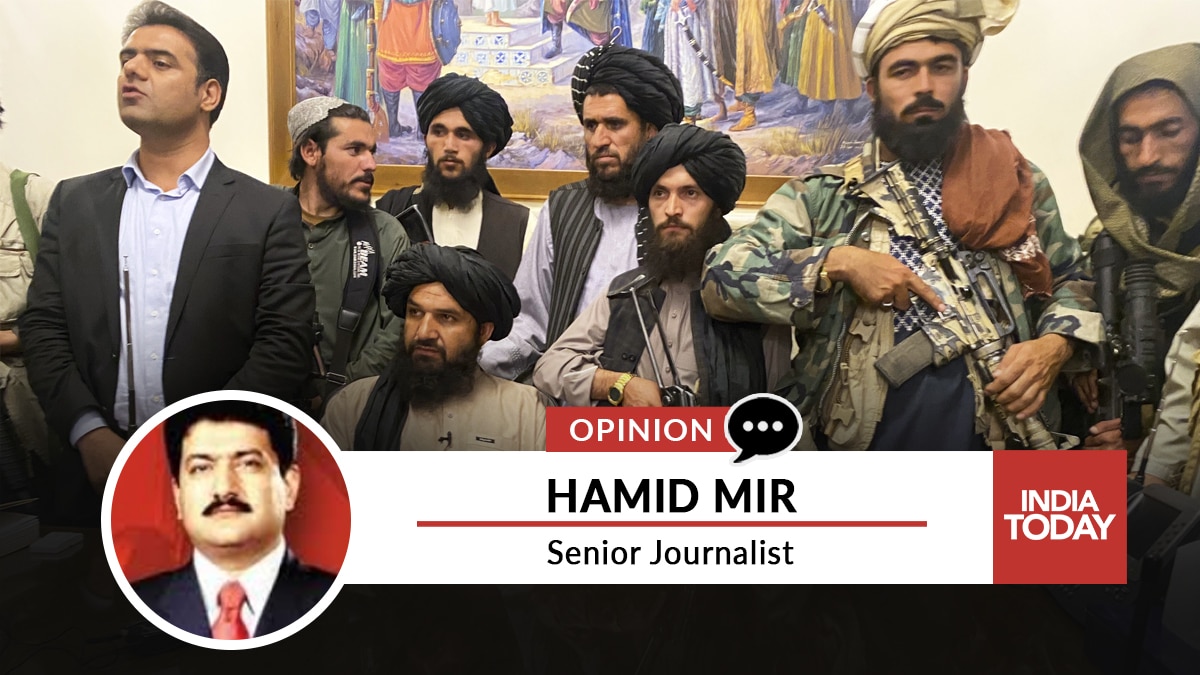
 www.indiatoday.in
www.indiatoday.in

The Rise, Fall And Rise Of Taliban: An Afghan Story, Taliban rise to power timeline
The rise, fall and rise of Taliban interactive: Who are the Taliban and why are they feared? Where did they come from and what do they want? As they make global headlines yet again, here is their story.
Here is a article by a veteran Pakistani journalist who is familiar with the situation. As usual, India's name comes up ( in Pakistani articles) in surprising places to press the notion - India doesn't need Pakistan, Pakistan can't survive without India( to control its own population by its own military)The withdrawal of forces by the Soviets led to another civil war in Afghanistan. The then Najibullah government collapsed. A coalition of mujahideen parties - over half-a-dozen with ties to the ISI - formed an interim government. But it revived a civil war of a different kind in Afghanistan.
Now, militia groups started fighting among themselves for greater control. The relief of Soviet exit soon turned into despair. Law and order broke down across the country. Abduction, loot, robbery, murder, and corruption prevailed.
Against this backdrop, the 'Students', or the Taliban, emerged as saviours in 1994. They had come from the madrasas of Afghanistan and Pakistan. Their leader was Mullah Mohammad Omar, who had earned a reputation for being pious and assisting in the fight against the Soviets. He had the support of Osama bin Laden.
...
ARE THE TALIBAN POPULAR?
Depends on who you are asking. The Afghan population is living under fear. The government forces have failed to protect them and fled for their lives, many to neighbouring countries. A video has gone viral showing a group of over 20 Afghan government soldiers being shot by the Taliban after they surrendered to the outfit. This 'punishment' is aimed at instilling fear among the common people and as a reminder of how they ruled more than 20 years ago.
Surveys have been conducted by some American and European non-profit organisations to know the real support base of the Taliban among the Afghan people. In one survey conducted in 2009 by the US-based Asia Foundation, about 50 per cent of Afghans supported the Taliban as they shared their grievances against the government and public offices.
Ten years later, in 2019, the survey showed that less than 15 per cent Afghans were Taliban sympathisers. But it drastically changed when the US entered into a peace deal negotiation with the Taliban in 2020, when close to 55 per cent of the surveyed Afghans said they believed that the Taliban would restore peace and order in Afghanistan.

My personal account of dealing with two generations of Taliban
Hamid Mir, a senior journalist from Pakistan, shares his personal account of dealing with two generations of Taliban.
Twenty-five years ago, I was introduced to the Taliban militia as pipeline police. This introduction was arranged by then Pakistan Prime Minister Benazir Bhutto who was perturbed by my criticism of her government for supporting the Taliban. She asked her Interior Minister Naseerullah Khan Babar to brief me about the Taliban.
Babar was a retired Major General of the Pakistan Army. He admitted to me many times that he provided money and weapons to many famous Afghan rebels like Ahmad Shah Masood, Burhanuddin Rabbani and Gulbuddin Hekmatyar in 1975 as IG of Frontier Corps on the orders of then Prime Minister Zulfiqar Ali Bhutto, father of Benazir Bhutto.
Babar told me that he started supporting Afghan rebels in 1975 because the Afghan government led by Sardar Daud was sponsoring terrorism in Pakistan in collaboration with India. He said Pakistanis and Americans were supporting the Taliban because American oil company Unocal was treating the Taliban as pipeline police.
Zalmay Khalilzad, who signed the Doha agreement with Mullah Baradar in 2020, arranged a visit of Taliban leaders to Unocal offices in the US in 1997. Former US Ambassador to Pakistan, Robert Oakley, and Hamid Karzai were also working for Unocal in those days. Naseerullah Babar told me that Unocal provided money to the Taliban in 1995 for setting up a communication system between Kandahar and Quetta. Unocal wanted the Taliban to protect a gas pipeline from Turkmenistan to Pakistan via Afghanistan.
My first meeting with the late Mullah Omar was also arranged by Naseerullah Khan Babar. I realised that Mullah Omar was not aware of any great oil game in the region. He was only interested in enforcing Sharia in Afghanistan and said Pakistan must treat us like brothers not like subordinates. Naseerullah Babar used his influence on Burhanuddin Rabbani and Ahmad Shah Masood and forced them to start talks with the Taliban.
Babar wanted a broad-based government in Kabul representing all ethnic groups. Benazir Bhutto was reluctant to recognise the Taliban government despite US pressure. Her government was interested in giving the contract of the gas pipeline project to Argentinean oil company Bridas. She told me once that American officials forced her to make a deal with Unocal. Her government was trying to push a national unity government in Kabul. Famous Uzbek warlord Abdul Rashid Dostum also agreed to work with the Taliban, but the government of Benazir Bhutto was suddenly dismissed in November 1996 and behind-the-scenes Afghan peace talks were over. The pipeline project went to Unocal.
...
Mullah Abdul Razzaq Akhund died in a Pakistani prison in 2010. His prediction came true after 20 years, on August 15, 2021, when the Taliban re-entered Kabul by driving Humvees and riding tanks hoisting their white flag. Twenty years ago, US President George W Bush used the term 'crusade' for a war against the Taliban and Al-Qaeda. This term was loaded with historical baggage about religious wars.
The fact was that the word crusade is commonly used in the US and does not have much of a religious context but the use of that word by a US President certainly helped the Taliban. They gave a religious colour to their resistance. When Bush started his crusade twenty years ago, the Taliban were running away from Kabul. Now the Taliban are sitting in the Presidential Palace and the US is running away from Kabul. Who is the loser and who is the winner in this crusade? We must not jump to conclusions because in my view the real test of the Taliban started after August 15.
Taliban of today different?
Many people say that the Taliban of today are different from the Taliban of 2001. I think they are still loyal to their old ideology, but they have learned some new tactics in the last two decades. Their command-and-control system actually revolves around their ideology. It is important to know that the political office of the Taliban working in Qatar for many years was not an independent decision-making authority.
Decision-making powers are confined to "Rahbri Shoora" or grand consultative council and most of its members were part of the resistance inside Afghanistan. The Supreme Leader of the Taliban, Mullah Haibatullah Akhundzada, is the ultimate authority on religious, political and military affairs. He makes decisions in consultation with his three deputies.
Will Mullah Haibatullah allow democracy in Afghanistan? This is a very important and big question. What will be the use of the new parliament building in Kabul which was gifted to Afghans by the Indian Government? According to my information, the Taliban are very much flexible on the inclusion of all ethnic minorities, women and even non-Muslims in a new government, but they have strong reservations on "western democracy".
One Taliban leader asked me off the record that if the US, the UK, India and Pakistan can have friendship with a non-democratic state like Saudi Arabia, then why do they want to impose western democracy on Afghanistan? I have dealt with the generation of Mullah Omar, Jalaluddin Haqqani and Maulvi Younis Khalis. It was always easy to deal with them politely. They always refused to accept dictation. Their sons Mullah Yaqoob, Siraj Haqqani and Matiullah Younas are different only in their tactics not in approach. They may listen to the international community if dealt with politely otherwise they are always ready to embrace new wars like their fathers.
Taliban must address concerns of these countries
If the Afghan Taliban wants to avoid international isolation, then they must address the concerns of at least 10 countries, including Pakistan, India, Bangladesh, Myanmar, Uzbekistan, Tajikistan, China, Iran, Chechnya and the US. The Afghan Taliban cultivated Iran and Russia in recent years by claiming that only they can stop the rise of ISIS in Afghanistan. No doubt the Taliban never allowed ISIS to make strongholds in East and North of Afghanistan, but ISIS is not the only problem. Al Qaeda and other militant groups are also a matter of great concern for the international community. The Taliban will not hand over foreign militants to their respective countries like Mullah Omar refused to hand over Osama bin Laden to the US. This is a different situation now.
If the Taliban can address these concerns, then they can acquire international legitimacy. If they will not address these concerns, then they must be ready to face big problems. Afghanistan of today is not the same as Afghanistan of 2001. Many Afghans refused to accept the white flag of the Taliban as the substitute for their old national flag.
They challenged the Taliban without arms and some of them were silenced by bullets. Taliban announced general amnesty, but they raided houses of some journalists in Afghanistan. They stopped some female journalists from working in Kabul. There is a clear contradiction in their spoken words and actions. They are not setting good examples.
The Taliban cannot run Afghanistan like this. They learned to handle diplomats and media in the last two decades. Now they need to learn public diplomacy and the best way to win public trust comes through ballet, not through bullets. I had a long discussion with one Taliban leader on democracy recently.
I told him you can make a difference by proving that you enjoy public support. He smiled and said Muhammad Morsi proved that he enjoyed public support in Egypt, but Americans toppled his government through General Al-Sissi. He said we are not bothered by the views of those who imposed a corrupt leader like Ashraf Ghani on us but yes, we will try our level best to move forward with a general consensus.
Two decades ago and now, has anything changed?
25 years ago, the Taliban was introduced to me as pipeline police. Today it has become a multi-national force seen as a threat to the security of more than 10 countries. Gen sir Nick Carter, the head of the British Army rightly said that let's give the Taliban a chance to prove that they are different.
Are the Taliban really interested in utilizing this chance? I see a very bumpy road for the Taliban in Afghanistan if they fail to make a broad-based national government in Kabul. ...
Michael B-C
The Living Force
Observations coming to mind:
1. The deliberate and unnecessary bringing forward of this event (and ensuing chaos) highly suggestive of a pressing change in timeline needing to be met along with the creation of a chaotic cover story suggestive of incompetence but actually disguising malice aforethought.
2. The sudden 'rebirth' of Al-CIAda as witnessed in the Homeland briefing and the opportunity through refugee dissemination to create a souped up and yet - to the masses - well honed programme that will aide justifying anti-vaxers and Trump right wing extremists into the 'terrorist threat' and 'COVID threat' existential mix .
3. The constant messages that a new 9-11 is on the horizon... as we lead up to the 20 year anniversary.
Nothing new under the sun.
1. The deliberate and unnecessary bringing forward of this event (and ensuing chaos) highly suggestive of a pressing change in timeline needing to be met along with the creation of a chaotic cover story suggestive of incompetence but actually disguising malice aforethought.
2. The sudden 'rebirth' of Al-CIAda as witnessed in the Homeland briefing and the opportunity through refugee dissemination to create a souped up and yet - to the masses - well honed programme that will aide justifying anti-vaxers and Trump right wing extremists into the 'terrorist threat' and 'COVID threat' existential mix .
3. The constant messages that a new 9-11 is on the horizon... as we lead up to the 20 year anniversary.
Nothing new under the sun.
Ocean
The Living Force
Sky's chief correspondent reports on a developing crowd crush at Kabul airport that will make Hillsborough look like light jostling.
'Everything is under control.'
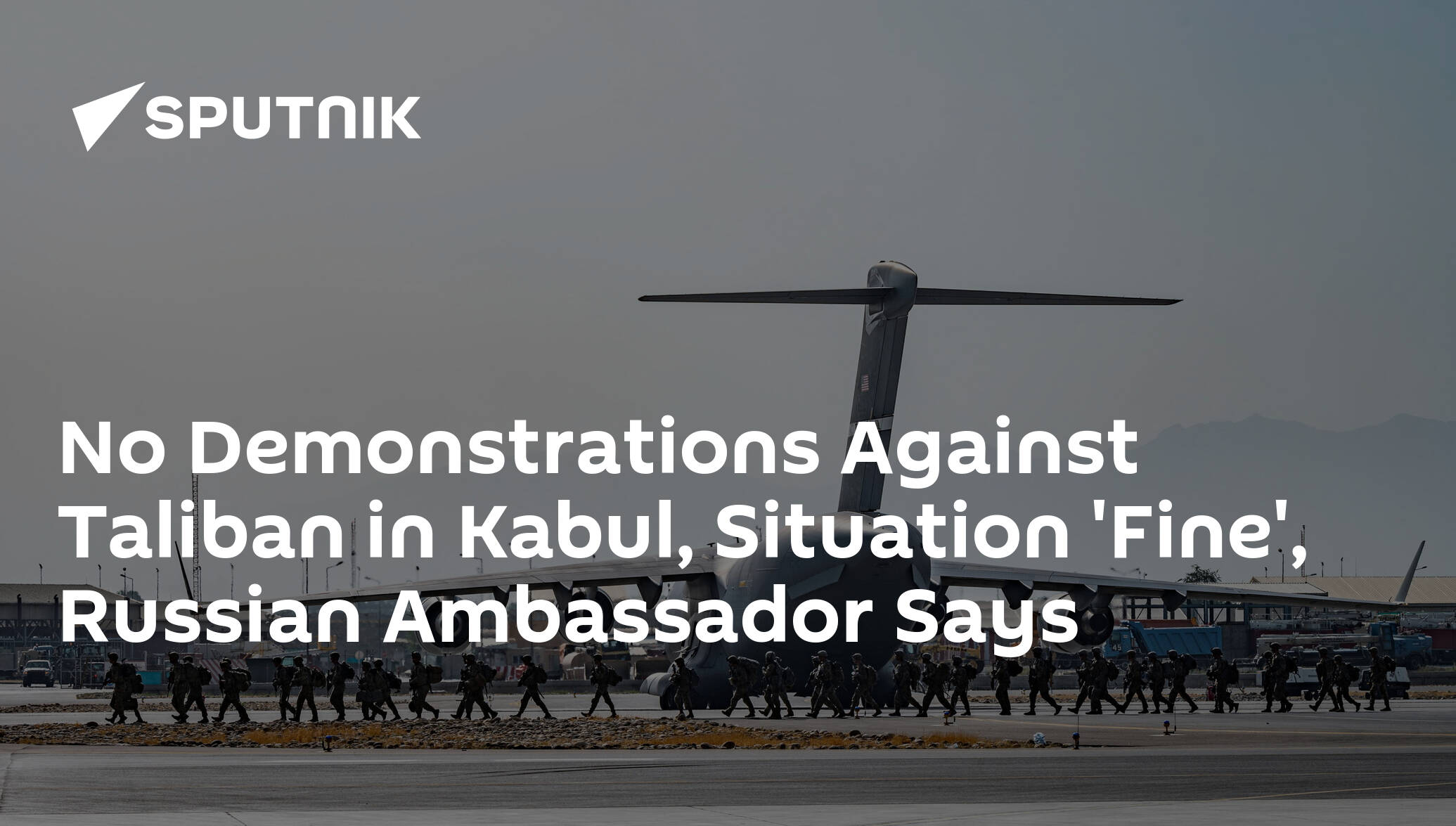
 sputniknews.com
21.08.2021
sputniknews.com
21.08.2021

No Demonstrations Against Taliban in Kabul, Situation 'Fine', Russian Ambassador Says
MOSCOW (Sputnik) - There are no demonstrations against the Taliban* in Kabul since the movement has seized control of the capital and majority of Afghanistan, and the life is back to normal, Russian Ambassador Dmitry Zhirnov said Saturday.
Ocean
The Living Force
The fake news has reached a very uncomfortable point: they've suddenly been forced to admit that Joe's pronouncements have no bearing on reality. They cannot both cover up for Joe AND report on the disastrous situation in Kabul without openly admitting that he has zero grasp of the real situation and is not in control of it.
You made your bed guys and now you can lie in it.
You made your bed guys and now you can lie in it.
Ocean
The Living Force
US general tells British special forces: Stop rescuing people in Kabul, you're making us look bad

US general tells British special forces: Stop rescuing people in Kabul, you're making us look bad
I understand that the commanding general of the 82nd Airborne Division has told the commander of the British special forces at the Kabul airport to cease
I understand that the commanding general of the 82nd Airborne Division has told the commander of the British special forces at the Kabul airport to cease operations beyond the airport perimeter.
Maj. Gen. Christopher Donahue has told his British Army counterpart, a high-ranking field-grade officer of the British army's 22nd Special Air Service Regiment, that British operations were embarrassing the United States military in the absence of similar U.S. military operations, according to multiple military sources. I understand that the British officer firmly rejected the request.
Col. Joe Buccino, a spokesman for the XVIII Airborne Corps, denied that Donahue made such a request.
“The XVIII Airborne Corps denies the central thrust of this story," the spokesman said. "Specifically, Gen. Chris Donahue, whose sole focus is security at HKIA, never made such a request to any British Army officials and would have no motive for doing so.”
This show of rare tension between the U.S. and British command groups in Kabul reflects three factors.
First, it shows the obvious stress of attempting to extricate thousands of personnel under a situation of increasing terrorist threat. Elements of the Haqqani network, the Islamic State in Afghanistan, and possibly al Qaeda are now operating in proximity to Kabul airport with some degree of command separation from the Taliban.
In addition, the British military has more operational latitude in Kabul than the U.S. military, including the Navy SEAL elements present at the airport. I understand that the SAS has conducted operations to bring American citizens, as well as British citizens and at-risk personnel, through checkpoints and to the airport. This is not an indictment on U.S. capabilities or special operations intent, but rather, it's a reflection of political-military authorities. In part, this difference is understandable. Large-scale U.S. military operations beyond the Kabul airport perimeter would entail significant risk absent prior Taliban approval. But there is a sense, at least by allies, that the U.S. military could be doing more to leverage the Taliban into providing greater ease of access to the airport for those most at risk.
A bureaucratic tug of war between the State Department, Pentagon, and White House is also disrupting evacuation operations out of Kabul. This is aggravating British, French, and other Kabul-present military authorities. I understand that these governments have been further aggravated by the failure of the White House and Pentagon to communicate adequately, or in some cases, to communicate at all, on their intentions and actions. All these allies admit, however, that only the U.S. military could provide the airfield defense and air traffic control capabilities now on display.
Still, as I noted on Wednesday , the Biden administration's conduct of the Afghanistan withdrawal has raised deep concerns by allies as to the administration's credibility and confidence. Speaking on the condition of anonymity, allied officials reemphasized this concern to me on Friday.
Trending content
-
Thread 'Coronavirus Pandemic: Apocalypse Now! Or exaggerated scare story?'
- wanderingthomas
Replies: 30K -
-
